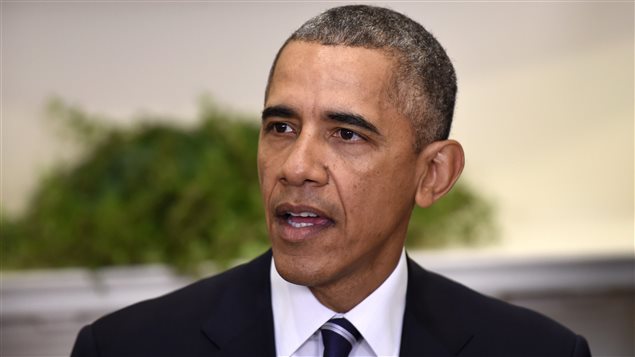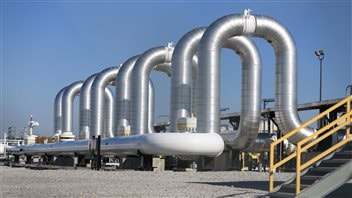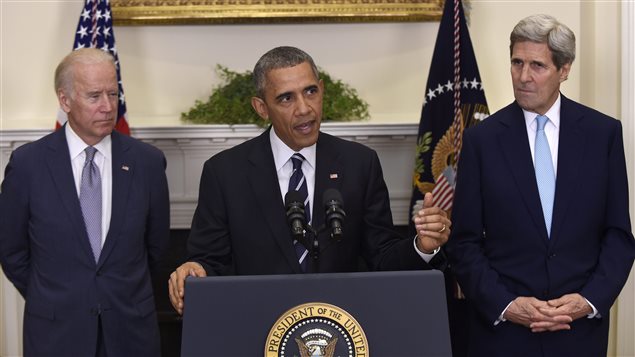
Canada’s new Liberal government says it is ‘disappointed’d with U.S. President Barack Obama’s decision to reject TransCanada’s application to build the Keystone XL pipeline.
Speaking from the White House on Friday, Obama said Keystone “will not serve the national interests of the United States.”
Obama said the State Department rejected the proposed $8-billion Keystone XL pipeline scheme to ship Alberta oil sands crude to the gulf coast and world markets, saying it would not make a meaningful long-term contribution to the U.S. economy.
“We are disappointed by this decision,” said Canada’s new Foreign Affairs Minister Stéphane Dion, speaking in Ottawa. “The prime minister expressed that very clearly to the president of the United States, President Obama. At the same time we understand that it’s a decision for the United States to do, according to their own environmental assessment and their own considerations.”
Canada’s new government wants to have a fresh start regarding climate change and the energy challenges facing the continent, Dion said.
Need to improve environmental effort
Alberta Premier Rachel Notley said the White house decision “underlines our need to improve our environmental effort and enhance our reputation so that we can achieve our goal of building Canada’a infrastructure including pipelines to new markets.”

Notley said Canada currently exports over 3 million barrels of oil a day to the U.S. and those exports will continue. She said raising environmental emissions standards for the Alberta’s oil patch would allow the province to be in a position to have conversations about the pipelines based on their merits.
“Pipelines actually are low emission ways to transport oil, rail cars are not low emission ways to transport oil,” Notley said. “We need to have careful, drama-free conversations about our energy infrastructure.”
Environmentalists applaud
However, environmental groups applauded Obama’s decision.
“President Barack Obama’s historic decision to reject TransCanada Corporation’s controversial Keystone XL pipeline brings North America one step closer to a low-carbon economy, while pointing to the power of citizen action in delivering the right political response to climate change”, said Diane Beckett, Interim Executive Director of the Sierra Club of Canada Foundation.
“Today’s decision by President Obama reiterates that climate change is a key consideration for all energy infrastructure projects going forward,” said Simon Dyer, Alberta director at the Pembina Institute. “Addressing climate impacts is the new normal for major energy infrastructure projects.”
Fighting words
But TransCanada says it isn’t about to take “No” for an answer.
“TransCanada and its shippers remain absolutely committed to building this important energy infrastructure project,” Russ Girling, TransCanada’s president and chief executive officer said. “We will review our options to potentially file a new application for border-crossing authority to ship our customer’s crude oil.”
The pipeline’s backers are expected to challenge Obama’s decision in court, and the Republican-controlled Congress may try to override the president, although those efforts have previously failed. The project could also get a fresh look in 2017 if a Republican wins the White House and invites TransCanada to reapply.
Another open question is whether the Calgary-based energy giant will try to recoup the more than $2 billion U.S. it says it has already spent on the project’s development. Earlier in the year, the company left the door open to suing the U.S. government under NAFTA.







For reasons beyond our control, and for an undetermined period of time, our comment section is now closed. However, our social networks remain open to your contributions.